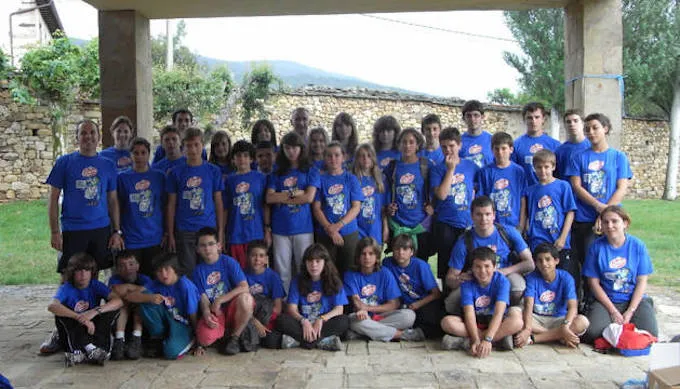A total of 52 boys and girls with diabetes between 7 and 18 years participate in a training camp organized by the Navarra Diabetes Association (ANADI), together with the CHN Child Diabetes Unit, which is held in the Bernedo Albergue inÁlava, whose objective is to promote autonomy, adhesion to the treatment and prevention of risk behaviors in the child and youth population.
As highlighted by Juantxo Remón, president of this organization, the camp "offers a diabetological education adapted to each age through leisure activities, emphasizing values and emotional development";At the same time that he explained that for eight days of coexistence, "we offer them activities and games to have fun and learn to control their illness in everyday situations such as sports, food, hypoglycemia or insulin management."
The camp has various health professionals, such as nurses, doctors and pediatricians, and eight free time monitors, which resultsAnd they do not know how to puncture and when they return home they can do it also.
This activity is part of the association's training program, which considers education in diabetes as "a key aspect to learn to live with a disease that accompanies you a lifetime."Moreover, at an early age, Remón adds, when "children spend much of their time at school, an environment outside the family's care and in which they are more discharged", so "it is essential to give them someKnowledge and general action guidelines to promote its autonomy and this camp is a good starting point to do so. "
Remón recalled that "it is the child who controls his diabetes, such as putting the insulin or controlling his sugar levels, but until he acquires the necessary skill he ultimately depends on the supervision of an adult," and said to theRegarding that "as there are no nursing staff in all schools, they ultimately depend on their teachers and staff of the educational center."
In this sense, Anadi is committed to a greater training of teachers and personnel from the educational centers, to know the guidelines of the child with diabetes, avoiding situations such as "children who stay out of the dining room or excursions by not having an adult inthe center that can support him in the control of his diabetes. "Likewise, it is committed to establishing an action protocol in the school environment coordinated with the Departments of Education and Health, a work that began several months ago and has not yet been closed.


